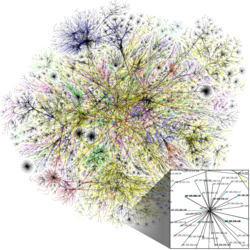| Internet |
|---|
 |
| |
World Day Against Cyber Censorship is an online event held each year on March 12 to draw attention to the ways that governments around the world are deterring and censoring free speech online. [1] [2]
| Internet |
|---|
 |
| |
World Day Against Cyber Censorship is an online event held each year on March 12 to draw attention to the ways that governments around the world are deterring and censoring free speech online. [1] [2]

On World Day Against Cyber Censorship, Reporters Without Borders awards an annual Netizen Prize that recognizes an Internet user, blogger, cyber-dissident, or group who has made a notable contribution to the defense of online freedom of expression. [3] [4] Starting in 2010 the prize has been awarded to:
In conjunction with World Day Against Cyber Censorship, Reporters Without Borders published its Enemies of the Internet list periodically from 2006-2014. [13] [14] [15]